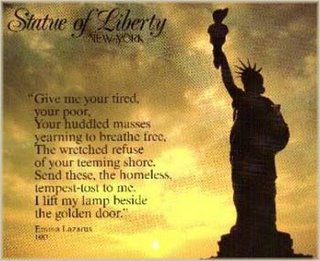I had so much to say to this man, so much built up but as I looked into his brown Bolivian face words were a luxury neither of us would have that day. In the refuge of our shared silence, I could only hope that somehow he knew what was racing through my mind, what I so badly wanted to tell him but at that time, had no ability, perhaps even no right to say.
If I could look into this native and dark Bolivian face and out of it pull the image of my own family, I hoped he could look back at my pale gringo face and somehow in me, see his own kin. I wanted him to know that the poverty which pretty much was assigned to him at birth because of the location of the world he was born into angered me just as much as when I thought about the wretched poverty so many in my family endured in Ireland. I imagined what it would be like if years from now, my path and his were to cross again, but this time in Chicago or Los Angeles, where he had perhaps attempted to escape a life of poverty to claim what was his right as much as anyone else’s: a chance to feed his children and give them an opportunity at a life other than vicious and dedegradingoverty. And so I imagined seeing him in LA, working some difficult dead end job for little pay and no benefits, and I wanted to let him know that illegal would not be the word I would disdainfully use to describe him. For was not my own great-grandfather an alien in a country that promised opportunity, a treasure in his time he perhaps discovered somewhere behind the many signs and want ads that read ¨Jobs available: Blacks and Irish NEED NOT APPLY! ¨
I do not know the real face of the man I would call my great-grandfather. I know he lived in an impoverished land, escaped it and fled to America in pursuit of something more and for that, faced severe discrimination. He endured so much, even his own child, my grandfather, endured so much for me, and sadly, I do not know what they looked like. But all that got me thinking, imagine if we were able to look at the real human face of poverty and ¨illegal¨ immigration, and political rhetoric aside, we were able to see in that once foreign face our own family who at some time or another struggled against the odds and discrimination to get us where we are today.
I saw my great-grandfather in the face of an impoverished Bolivian today, and against the odds of our cruel and spiteful world, I hope in my face and my experience, he was able to get a glimpse of his own kin. Only when we identify with that face and see our common good linked to theirs will we begin to understand it is the poverty that should be illegal, not the person.
When my great grandfater came to America, he was greeted by these words on the Statue of Liberty..."Give me your tired, your poor, Your huddled masses yearning to breathe free, The wretched refuse of your teeming shore. Send these, the homeless, tempest-tost to me, I lift my lamp beside the golden door"
I wonder if we will put the same words on that gigantic wall we want to build across the Mexican border?


No comments:
Post a Comment